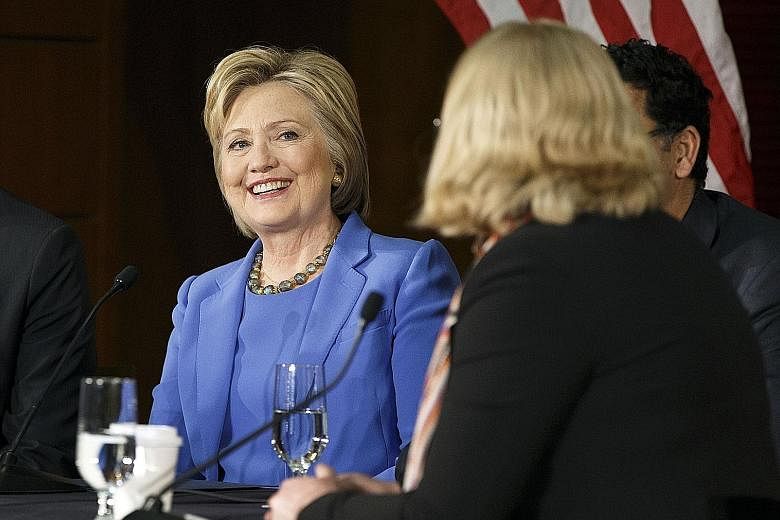The relatively orderly Democratic Party's nomination process can seem miles away from the rough and tumble Republican one but the circumstances are not all that different. Like in the Republican Party, the Democrats have an insurgent outsider in the form of Senator Bernie Sanders challenging a so-called establishment pick, former secretary of state Hillary Clinton.
The big difference, of course, is that the Democratic establishment seems to be winning. Despite Mr Sanders' strong performances in a host of states and a shocking upset earlier this month in Michigan, Mrs Clinton seems to be well on course to secure the party's nomination. A strong showing by Mr Sanders on Saturday notwithstanding, she still leads by around 300 pledged delegates.
Experts say her strong performance is partly aided by the fact that party insiders have tilted the field in her favour. Why they back her isn't simply because of her existing relationships but also a belief that she is the best person to deliver the policy goals they want.
Perhaps the most obvious instrument of party control is the use of superdelegates. There are two types of delegates in the Democratic Party: pledged delegates who are allocated through the primary voting process, and superdelegates who are free to support any delegate they choose. What makes them "super" is the fact that they carry the same weight as 10,000 votes by ordinary people in the primaries. At the party's nominating convention, votes from superdelegates and pledged delegates count the same, but for a candidate to gain a pledged delegate, he needs to earn them at an election. For instance, by winning 151,584 votes in New Hampshire, Mr Sanders won 15 of the state's 24 pledged delegates. To gain a superdelegate, a candidate has to pick up the phone and make a pitch to one person.
The party's 712 superdelegates are made up of all the Democratic governors, congressmen and senators as well as a host of national party leaders. There are not enough of them to appoint a candidate - there are roughly five times more pledged delegates - but they can easily swing the nomination in a tight race. This year, 469 superdelegates have already indicated they would vote for Mrs Clinton while just 29 are backing Mr Sanders. They are free to change their minds but would likely need to see Mrs Clinton's performance at the polls suffer significantly before making a jump.
The superdelegate system was created by the party in 1982 as a reaction to embarrassing losses in the preceding decade. President Jimmy Carter lost his re-election bid in 1980 to Mr Ronald Reagan in one of the most lop-sided defeats in history. He was beaten in 44 of the 50 states and lost the popular vote by nearly 10 points. Still, it wasn't as bad as the 1972 election, where Mr George McGovern lost to President Richard Nixon in 49 states. The superdelegate system was thus introduced to add more order to the convention and to try and pick more electable candidates. Ironically, in the election that followed, Democratic candidate Walter Mondale still got trounced by President Reagan.
-
Who calls the shots? With heated battles under way to pick presidential nominees, The Straits Times US Bureau looks at the role of party establishments in picking the winners.
Other mechanisms the party establishment - the elected officials, donors, activists, media and civil society groups - uses include control of the televised debate schedule and occasional private lobbying.
James Madison University political science expert Marty Cohen, who co-authored a book on the nominating process called The Party Decides, said party leaders appeared to set up the debate schedule this year to protect Mrs Clinton. Televised debates are a useful platform for lesser-known candidates to introduce themselves to voters but the party initially scheduled just six debates - half the Republican number - and put them all on weekends when fewer people would be watching TV.
"They didn't schedule a lot of debates, because they wanted to protect her from debates and public scrutiny," said Dr Cohen. "Despite the fact she is not the most adept campaigner... she was able to survive a pretty strong insurgent candidacy from Bernie Sanders and I think you have to look at her broad establishment support across the base of the party as a reason..."
US election 2016: More stories online at: http://str.sg/Zjyq

